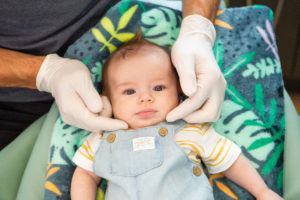Caring for a child’s baby teeth is a very important task often forgotten by parents. Many don’t realize the consequences of neglecting these teeth and the effects they can have on the child’s oral health. Baby teeth are crucial in the structural and muscular development of the child’s mouth and face. They are also very useful in teaching children healthy dental habits. That way when their permanent teeth come in, they know how to care for them.
What Is the Purpose of Baby Teeth?
Most children have a majority of their baby teeth by the age of three. These teeth not only help the child with chewing, but they are also useful with speech development. Overall, baby teeth are essential in providing a good foundation of dental hygiene before the child develops their permanent teeth. Teaching children how to care for their teeth can also help promote healthy eating since nutritious foods are better for their little munchers than sweet treats and junk food. The main purpose, however, is to help children learn how to care for their teeth before the permanent ones come in.
Baby Teeth Are Just as Important as Permanent Teeth
Many parents believe that since the baby’s teeth will eventually come out, it is not important to teach their children how to care for their teeth until the permanent ones come in. While it is true that baby teeth are temporary, these teeth are just as important as permanent ones. Not only are baby teeth essential for teaching your kids healthy dental habits, but they are also vital in the emotional, physical, and social development of children.
3 Important Reasons to Care For Your Baby’s Teeth
The three most important reasons to care for your baby’s teeth just as well as you would care for permanent teeth are:
- Concentration and Self-Esteem: When a child is experiencing dental pain, it can distract them from concentrating on important things such as school. Decayed teeth can also affect the self-esteem of the child and lower their self-confidence. They may even feel embarrassed to talk or laugh.
- Speech and Facial Development: In the early stages of development, the tongue, teeth, lips, and cheeks all work together to form sounds when speaking. When the positioning or structure of any of these areas is off, it can affect how the child speaks. The tooth structure also provides support for the developing muscles in the mouth and face and gives the child’s face its shape.
- Tooth Alignment and Position: Baby teeth pave the way for the development of permanent teeth. They leave the open space needed for the permanent tooth, and if it is lost early due to improper care, then the adjacent teeth can begin shifting and twisting which will affect the growth and placement of the permanent teeth. This movement can also be very painful for your child.
How To Care For Your Child’s Teeth

Early Dental Care
Caring for baby teeth can be a big job in the beginning but as your child gets older, it’ll get easier as they become more capable. For parents, it is important to start caring for their kid’s teeth early on and then begin teaching them how to do it themselves. Parents can even start a few days after birth by wiping their baby’s gums with a clean, moist piece of gauze or washcloth. The two front teeth usually begin growing around 6-14 months of age depending on the baby, and should also be cleaned regularly.
Teeth Care for Children Ages 3-4
Once they are about three years old your child will have most of their baby teeth and you can begin teaching them how to brush their teeth using a small amount of fluoride toothpaste that is safe for children. If you are unsure about which toothpaste is safe to use, asking a pediatric dentist or reading the labels will tell you for sure. Make sure they brush in the morning and night and supervise them if they insist on doing it themselves.
Teeth Care for Children Ages 3+
For children between the ages of three and up, is a good time to start teaching them the proper ways to brush and for how long. Once you feel comfortable with their brushing skills and that they understand the importance of taking care of their teeth, you can limit your supervision. When your child starts getting teeth super close together, this is a great time to introduce flossing as well.
What If You Don’t Take Care of Your Child’s Teeth?
As a parent, it is your responsibility to engrain good habits in your child, including oral hygiene habits. If you don’t take good care of their teeth yourself, it leaves a bad example for them, and you may even be doing damage to the permanent teeth. Some parents believe that just because they are baby teeth and will eventually fall out, that they don’t have to care for them as well as permanent teeth. While it is true that they will most likely fall out, creating good habits with the baby teeth is essential in ensuring your child knows how and is capable of taking care of their permanent teeth.
Another reason why caring for your child’s baby teeth is so important is because of cavities and other dental issues. These conditions can lead to severe pain and discomfort when they are left untreated and leave your child feeling miserable. Their teeth may even result in an infection and affect the permanent ones waiting below.
When Should I Take My Baby to the Dentist?
Your child’s first dental visit should be around the age of one. During this first visit, the dentist can check on the growth and development of the teeth as well as any cavities and other problems. They can also help you with tips on teaching your child how to brush and handle bad habits, such as thumb sucking.
Find an Experienced Pediatric Dentist Near You
Taking little kids and babies to the dentist can be quite the chore for many parents, especially when the child is scared to go. As we all know little kids are usually not a fan of change or even new things, especially something like the dentist where they are expected to allow a perfect stranger into their mouth.
It can be a scary experience for a child, even when the staff and the parents try hard to make it enjoyable. That is exactly why it is so important to find a pediatric dentist that you can trust and that will treat your child like their own. The goal of the first few visits should be to make sure your child is comfortable and has a good experience. This will help them continue with the dentist as they get older. Contact Granger Pediatric Dentistry to make an appointment for your child today, and get started on developing those health hygiene habits. Contact Granger Pediatric Dentistry in West Valley City, UT today for more information about how to care for your child’s baby teeth.

